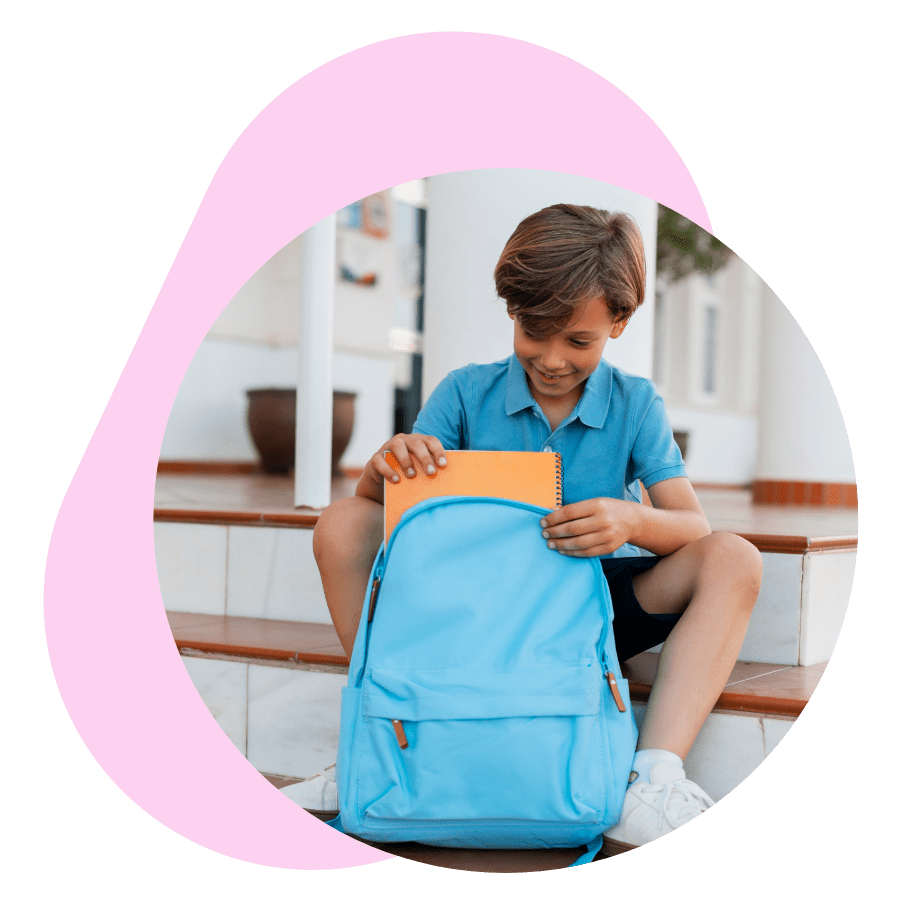
1- Introduction: Members of my family
Is your family big or small? What is your friend's name?
Families are very important because they share with us.
Families can be big or small.

2- Vocabulary: Picture dictionary
| 1) |
|
This is my family. A family is important. Families can be big or small.
|
| 2) |  |
This is my dad. My dad is tall. He plays with me.
|
| 3) |  |
This is my mom. My mom is loving. She takes care of me.
|
| 4) |  |
This is my brother. My brother is my friend. I love my brother!
|
| 5) |  |
This is my sister. My sister is funny. She is my friend.
|
| 6) |  |
This is my grandma. My grandma is loving. She takes care of me.
|
| 7) |  |
This is my grandpa. My grandpa is my friend. We play games together.
|
| 8) |  |
This is my friend. My friend’s name is Erick. We play games in the park.
|
| 9) |  |
These are my parents My parents are great! I love my parents.
|
| 10) |  |
This is my cousin Mia. She is my friend. We play together.
|
2.1- Vocabulary Game
Match the picture with the correct description. Number 1 is an example:

Answer Key: Vocabulary Game

3- Grammar: Verb to be
Let’s see how to use the verb -to be to tell the condition of people, things, places and ideas. We can use
verb -to be in affirmative sentences  negative sentences
negative sentences  and questions
and questions  .
.
3.1- Affirmative sentences 
We can use the verb to be to talk about names, ages, feelings, nationalities, and professions.
Examples:
|
|
I am seven years old. |
 |
|
|
She is six years old. |
 |
|
|
They are friends. |
 |
3.2- Negative sentences 
When we need to say that something is not true about names, ages, feelings, nationalities, and professions.
Examples:
|
|
I am not six years old. |
 |
|
|
She is not seven years old. |
 |
|
|
They are not friends. |
 |
3.3- Questions 
We use the verb to be to make questions about names, ages, feelings, nationalities, and professions.
Examples:
|
|
Is she six years old? |
 |
|
|
Are they friends? |
|
See the table below to review the use of present simple of verb be.
| Person | Verb to be affirmative / negative | (the rest) |
| I | am / am not | seven years old. |
|
he she it |
is / is not | six years old. |
|
you we they |
are / are not | friends. |
| verb to be | Person | Answer | |
| Is | he / she / it | six years old? | Yes, he is. No he is not |
| Are | you / we / they | friends? | Yes, we are. No we are not |
3.4- Practice!
Look and complete the sentences with verb – to be: Look for the clues  ,
,  ,
,  .
.
| 1) |  |
2) |  |
She _____ two years old.  |
It _______ my house.  |
| 3) |  |
4) |  |
____ they friends?  |
They _______ friends.  |
Answer key:
| 1) |  |
2) |  |
She is two years old.  |
It is my house.  |
| 3) |  |
4) |  |
Are they friends?  |
They are not friends.  |
4- Dialogue: Listen and repeat

Game:











